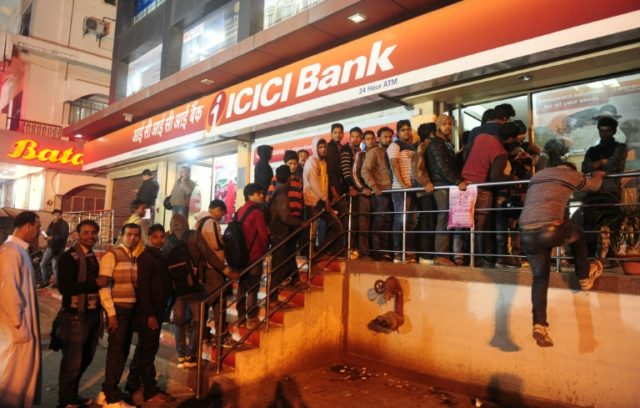New Delhi (AFP) – India’s central bank on Wednesday rolled back an order restricting deposits of banned rupee bills into bank accounts, after the move sparked a huge public backlash.
Prime Minister Narendra Modi unleashed chaos last month with his shock move to withdraw high-denomination 500 ($7.50) and 1,000 rupee notes from circulation, in an effort to tackle widespread corruption and tax evasion.
On Monday, just days before the December 30 deadline to swap old rupee bills for new ones, the Reserve Bank of India (RBI) said that deposits of over 5,000 rupees in old banknotes would only be allowed once before the cut-off date.
People would also be required to explain why they had not deposited the money earlier.
The RBI reversed its decision Wednesday for all “verified” bank accounts, without giving a reason.
“On a review of above, we advise that provisions of the above circular… not apply,” it said, citing the Monday order.
The restrictions had caused anger and confusion across the country, with local media reporting that some banks had declined deposits higher than 5,000 rupees.
Opposition parties had also attacked the move, with many Indians already facing a shortage of cash as ATMs run dry and long queues materialise outside banks across the country as people try to get rid of their old notes — some 86 percent of all bills in circulation.
Modi has repeatedly defended the scheme, saying it will bring billions in so-called “black”, or undeclared, money back into the formal system.
Political activist and Modi critic Yogendra Yadav lashed out at the government on Twitter.
“I was assured by the Prime Minister, the Finance Minister and the RBI that there was no need to rush to the banks and that I had till 30 December for making any deposit. I believed them,” Yadav tweeted.

COMMENTS
Please let us know if you're having issues with commenting.